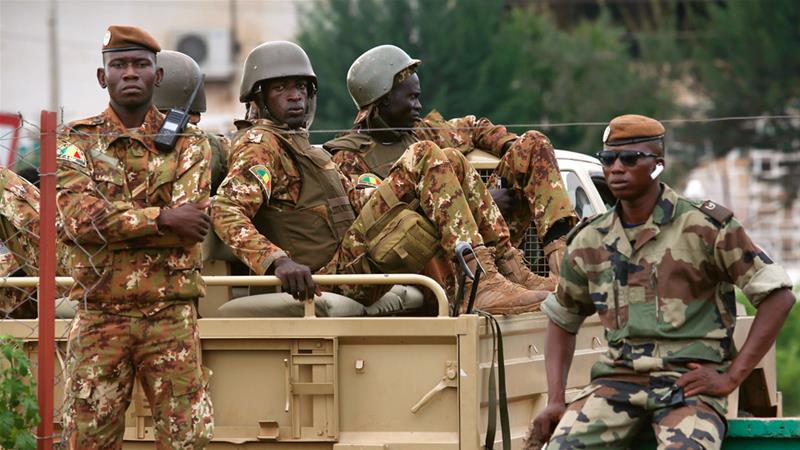This coup was not unexpected as it followed months of mass protests against alleged corruption, a worsening economy and disputed elections.
The coup in Mali is not a putsch by disgruntled soldiers in a distant land. It is an extended European neighbourhood and matters to Britain. The UK already has three Chinook helicopters deployed in country and 250 British troops are scheduled to take up UN peacekeeping duties in December in what could be the ministry of defence’s most dangerous deployment since Afghanistan.
This coup was not unexpected as it followed months of mass protests against alleged corruption, a worsening economy, disputed legislative election results and deteriorating security in this West African country. Mali’s military is struggling to stop the insurgents, some of them now also affiliated with the ISIL (ISIS) armed group, despite UN, EU, French and regional military support.
The departure of Mali’s President Ibrahim Boubacar Keita was met with jubilation by anti-government demonstrators in Bamako and the leaders of the military coup say they would enact a political transition and stage elections within a ‘reasonable time’.
Coups, followed by transitional arrangements and then new elections, are not rare in this region and have happened before in Mali when Keita’s predecessor Amadou Toumani Toure was overthrown by the military in 2012. The current cycle of insecurity followed despite a significant military intervention by France to restore elected government and stop the spread of Islamic extremist insurgency.
This is a reminder of how fragile the Sahel regon is and the importance of seeking stability and state building in a region of spreading Islamic extremist insurgency and rapidly-eroding state legitimacy.
The regional bloc ECOWAS (Economic Community of West African States) has denounced the coup and ordered the closing of regional borders with Mali as well as the suspension of all financial flows between Mali and its 15 members states. What follows now will be negotiations over the transitional arrangements and the timetable for new elections.
This will not be straightforward. Although the opposition was united in their demand for Keita’s resignation there is little consensus on what to do next, while the UN Security Council and ECOWAS are divided on how to respond beyond initial condemnation.
It is urgent that three UK cabinet ministers, led by the first secretary of state Dominic Raab, who are currently reviewing the UK’s Sahel strategy complete this and decide upon its future direction.
The UK government needs crystal clarity on its Mali objectives as the clock ticks down to the deployment of British troops there. Increasingly this UN duty looks to become more peacemaking than peacekeeping.
ALL AFRICA

